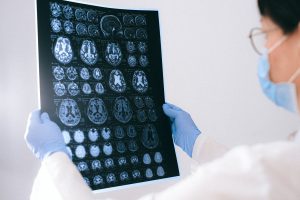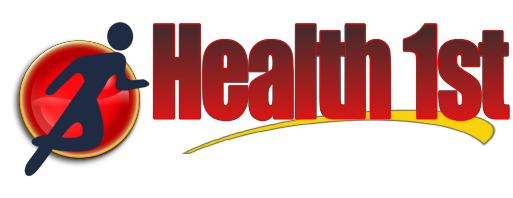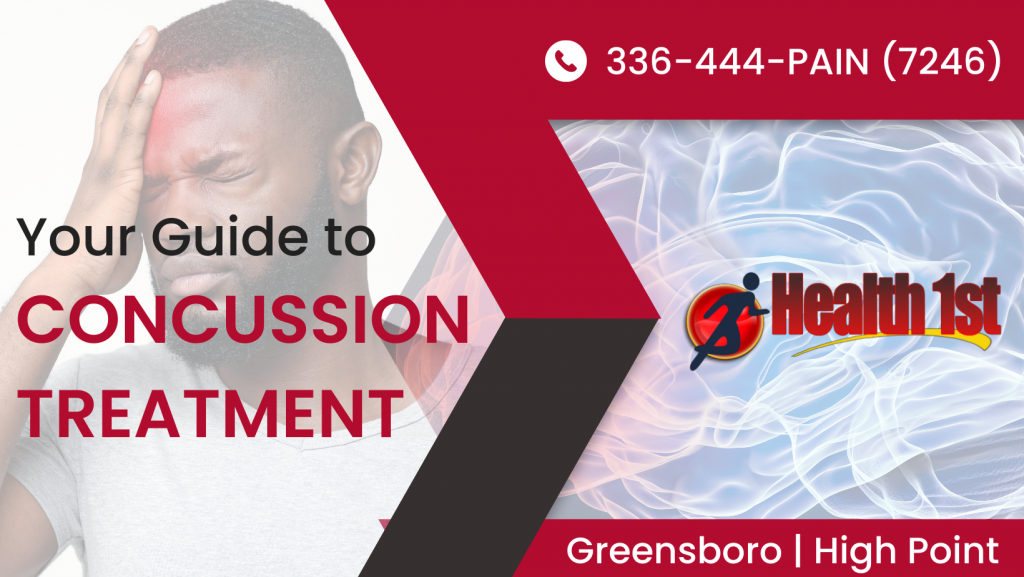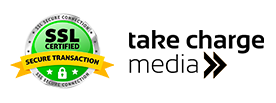Have you been in a sports related or automobile accident? Are you experiencing any symptoms such as: headaches, back pain, muscle spasms, and neck pain? Did you know these symptoms left untreated can cause serious and life-threatening injuries or
Trauma?
Some accident trauma shows up immediately, while some take weeks to even months to experience any symptoms. If you have experienced these pains and injuries call Health First Chiropractic and Rehabilitation to evaluate you today!

What are Concussions
A concussion is a traumatic brain injury that affects your brain function. Effects are usually temporary but can include headaches and problems with concentration, memory, balance and coordination.
Concussions are usually caused by a blow to the head. Violently shaking of the head and upper body also can cause concussions. Some concussions cause you to lose consciousness, but most do not. Falls are the most common cause of concussion.
Concussions are also common if you play a contact sport, such as football or soccer. Most people usually recover fully after a concussion.
How We Treat Concussions at Health First Chiropractic and Rehabilitation
We treat concussions, concussion symptoms and concussion by addressing all the peripheral concerns caused by your concussion. We try to get to the root cause, which is often a dysfunction in the musculoskeletal or nervous systems.
Our chiropractors conduct a thorough physical exam. This happens with all new chiropractic patients and may include everything from range-of-motion tests, exams and more.
Concussion FAQ’s:
What should you do after a concussion?
- Rest (for 1–2 days after the concussion)
- Relax at home.
- Avoid or cut down on screen time.
- Don’t drive.
- Avoid all sports and any activities (such as roughhousing with friends, or riding a bike or skateboard) that could lead to another head injury.
- Sleep.
What are the 3 R’s to treat a concussion?
Teens have the best chance of recovering from a concussion and avoiding complications when students, parents, and schools follow the three R’s: recognize, report, and recover.
What should you not do with a concussion?
Over stimulating your brain after a head injury will not allow it to rest and recover. Using your brain to think hard, read, study or try to learn new material may be very difficult and may aggravate your condition. Just rest your brain.
Is it okay to take medicine for a headache with a concussion?
It’s safe to use Tylenol* in the first 24 hours, as long as symptoms don’t get worse. Ibuprofen and Aleve should not be taken the first day, on the side of caution, as they may increase the risk of bleeding. If a headache continues after two weeks, you need to return to your doctor to look for other causes.
( *We recommend you always speak to your doctor or health care provider first )
Can I watch TV with a concussion?
Auto and motorcycle accidents are common causes of concussions. If you’ve been diagnosed with this brain injury, your doctor will instruct you to avoid watching TV, or using your smartphone, computer, iPad, electronic reading device, or any other electronic media until you’re fully recovered.
How long does it take to recover from a concussion?
With a normal concussion, after two to three days of rest, you should be easing back into your normal routine.
Why are multiple concussions serious?
Multiple head injuries are when an individual has a second head injury before the first injury has healed completely. Similar to the first injury, loss of consciousness is not required to have a concussion again. The second impact can cause swelling, excess fluids or tissue shift inside the skull which can cause serious health issues. Repeat head injuries also slow down your recovery.
What helps a concussion heal faster?
-How can I speed up concussion recovery
-Reduce screen time
-Limit exposure to bright lights and loud sounds
-Avoid unnecessary movement of your head and neck
-Stay hydrated
-Rest
-Eat more protein
-Eat foods rich in omega-3s
-Eat foods with lots of antioxidants.
Common Symptoms:
Common symptoms after a concussion traumatic brain injury are headache, loss of memory (amnesia) and confusion. The amnesia usually involves forgetting the event that caused the concussion.
Physical signs and symptoms of a concussion may include:
- Headache
- Ringing in the ears
- Nausea
- Vomiting
- Fatigue or drowsiness
- Confusion or feeling as if in a fog
- Amnesia surrounding the traumatic event
- Dizziness or “seeing stars” blurry vision
Schedule Today!
Call now 336-235-4022 to schedule an in-depth consultation, evaluation and review!
Sports and Automobile accidents are frightening and can cause serious and life-threatening injuries. Some accidental trauma shows up immediately, while some take weeks to months to show up in the form of symptoms like headaches, back pain, muscle spasms, and neck pain, etc. If you have experienced these pains and injuries that show up after weeks or months of the accident call Health First Chiropractic and Rehabilitation to evaluate you today!


